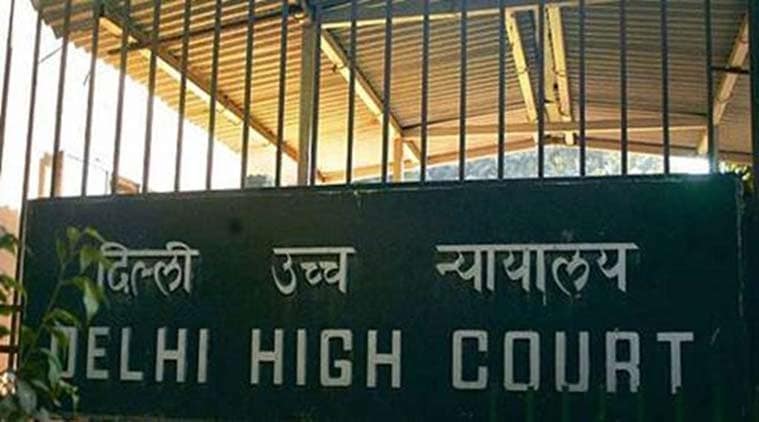- India
- International
Doctrine of tooth for tooth, eye for eye can’t be applied: Delhi HC
Jitender, a former Delhi University student, who was awarded 30 years jail term by a trial court in a murder case, was directed by the court to remain in prison for the rest of his life in another murder case.
 The Delhi High Court. (File Photo)
The Delhi High Court. (File Photo)
“A tooth for a tooth and an eye for an eye” cannot be the criteria for handing down punishment to convicts in a civilised society, the Delhi High Court has said while setting free a former DU student who has already undergone jail term of over 16 years in two murder cases.
Jitender, a former Delhi University student, who was awarded 30 years jail term by a trial court in a murder case, was directed by the court to remain in prison for the rest of his life in another murder case.
Watch what else is in the news
It was clarified by the lower court that the jail term till death would commence on conclusion of the 30-year-term awarded to the convict, now aged 42.
Referring to the “doctrine of proportionality”, a bench of Justices G S Sistani and Sangita Dhingra Sehgal said that it has a “valuable application to the sentencing policy under the Indian criminal jurisprudence”.
“We believe that being a civilised society — a tooth for a tooth and an eye for an eye ought not to be the criterion and as such the question of there being acting under any haste in regard to the life imprisonment would not arise; Rather our jurisprudence speaks of the factum of the law courts being slow in that direction and it is in that perspective a reasonable proportion has to be maintained between the heinousness of the crime and the punishment.

“While it is true, punishment disproportionately severe ought not to be passed but that does not even clothe the law courts, however, with an opinion to award the sentence which would be manifestly inadequate having due regard to the nature of offence since an inadequate sentence would not subserve the cause of justice to the society,” the bench, in its 38-page judgement, said.
Modifying the sentence handed down to Jitender, the bench said that sentence was “in excess of the requirement of the situation” and the “trial court in this case has acted in utter haste by passing the order on sentence on the same day with a pre-determined mind”.
The trial court has shown “utter impatience” and “also incorrectly applied the law”, the high court said while awarding the sentence of 16 years and 10 months on the convict, the period already undergone and ordered his release if he is not wanted in any third case.
The high court said, “While it is true, punishment disproportionately severe ought not to be passed but that does not even clothe the law courts, however, with an opinion to award the sentence which would be manifestly inadequate having due regard to the nature of offence since an inadequate sentence would not subserve the cause of justice to the society.
“…The doctrine of proportionality has a valuable application to the sentencing policy under the Indian criminal jurisprudence. Thus, the court will not only have to examine what is just but also as to what the accused deserves keeping in view the impact on the society at large.”
It said, “In the contextual facts, on considering the aforesaid principles and having regard to the nature of the offence and the methodology adopted, we are convinced that the power to impose a modified punishment providing for any specific term of incarceration or till the end of the convict’s life as an alternate to death penalty, can be exercised depending on the facts of the case.
“Further, the punishment awarded to the appellant herein is in excess of the requirement of the situation and as such the mitigating factors put forth by the learned counsel for the appellant are meant to invite mercy on the appellant.”
The verdict had come on two appeals of the convict against the trial court’s July 2013 order on sentencing in FIRs for two separate murders.
On March 10, 1999, Jitender had stormed into reception of a wedding in north Delhi and had shot dead Anil Bhadana, the then president of Satyawati College Students’ Union.
According to the prosecution, Jitender had killed Bhadana because he was about to depose against him (Jitender) in a criminal case.
He had also injured the father of the bridegroom when he fired indiscriminately. People attending the function tried to nab him, but he escaped.
The next day, he went to the house of Sumit Nayyar, an eye witness, who had informed police following Bhadana’s murder.
Jitender then pumped three bullets in the chest of Sumit’s father K L Nayyar, killing him on the spot.
Apr 26: Latest News
- 01
- 02
- 03
- 04
- 05






























